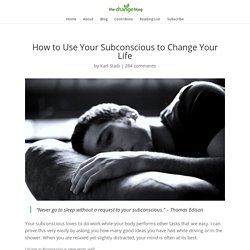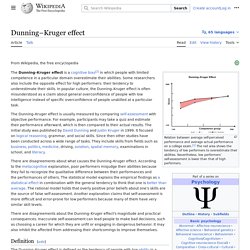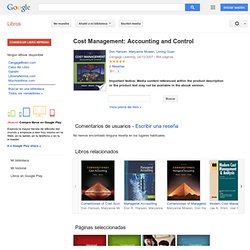

Databases. Khan Academy. Languages. Innovación. How to Use Your Subconscious to Change Your Life. “Never go to sleep without a request to your subconscious.” – Thomas Edison Your subconscious loves to do work while your body performs other tasks that are easy.

I can prove this very easily by asking you how many good ideas you have had while driving or in the shower. When you are relaxed yet slightly distracted, your mind is often at its best. Using subconscious requests will… Improve your motivation.Help you become happier.Increase your emotional intelligence. You’ll see improvement in less than a month. My last request was… “Please give me more patience when commuting to work and allow me to even enjoy my time in the car.”
Within a month I was enjoying my ride to work. My latest request is… “Let’s find creative ways to grow my blog.” I took this approach because it’s going to take a request to my subconscious and action in my waking life to make this happen. Mindset My mindset is changing by setting my subconscious on a certain issue.
The 3 step request only takes five minutes: An Essay by Einstein. "How strange is the lot of us mortals!

Each of us is here for a brief sojourn; for what purpose he knows not, though he sometimes thinks he senses it. But without deeper reflection one knows from daily life that one exists for other people -- first of all for those upon whose smiles and well-being our own happiness is wholly dependent, and then for the many, unknown to us, to whose destinies we are bound by the ties of sympathy.
A hundred times every day I remind myself that my inner and outer life are based on the labors of other men, living and dead, and that I must exert myself in order to give in the same measure as I have received and am still receiving... "I have never looked upon ease and happiness as ends in themselves -- this critical basis I call the ideal of a pigsty. The ideals that have lighted my way, and time after time have given me new courage to face life cheerfully, have been Kindness, Beauty, and Truth.
"My political ideal is democracy. The Meaning of Life. By Cliff Pickover The differences between men and women.

This is my lastest book: The Book of Black: Black Holes, Black Death, Black Forest Cake, and Other Dark Sides of Life Easily read my latest tweets, for free, here. Return to Pickover's main web page. Download Free Political Documentaries And Watch Many Interesting, Controversial Free Documentary Films On That You Wont Find On The TV!
Dunning–Kruger effect. Cognitive bias about one's own skill The Dunning–Kruger effect is a hypothetical cognitive bias stating that people with low ability at a task overestimate their own ability, and that people with high ability at a task underestimate their own ability.

As described by social psychologists David Dunning and Justin Kruger, the bias results from an internal illusion in people of low ability and from an external misperception in people of high ability; that is, "the miscalibration of the incompetent stems from an error about the self, whereas the miscalibration of the highly competent stems from an error about others".[1] It is related to the cognitive bias of illusory superiority and comes from people's inability to recognize their lack of ability. Without the self-awareness of metacognition, people cannot objectively evaluate their level of competence. Original study[edit] Later studies[edit] Mathematical critique[edit] Paired measures[edit] Cultural differences in self-perception[edit]
Contabilidad. Segmentacion Tesi México. Cost Management: Accounting and Control: Accounting and Control - Don R. Hansen, Maryanne M. Mowen, Liming Guan. Don R.

Hansen is Arthur Andersen Professor of Accounting and a Regents Service Professor at Oklahoma State University. He received his Ph.D. from the University of Arizona in 1977. He has an undergraduate degree in mathematics from Brigham Young University. His research interests include activity-based costing and mathematical modeling. He has published articles in both accounting and engineering journals including THE ACCOUNTING REVIEW, THE JOURNAL OF MANAGEMENT ACCOUNTING RESEARCH, ACCOUNTING HORIZONS, and IIE TRANSACTIONS.
Maryanne M. Dr. Chronology of Events in Science, Mathematics, and Technology.